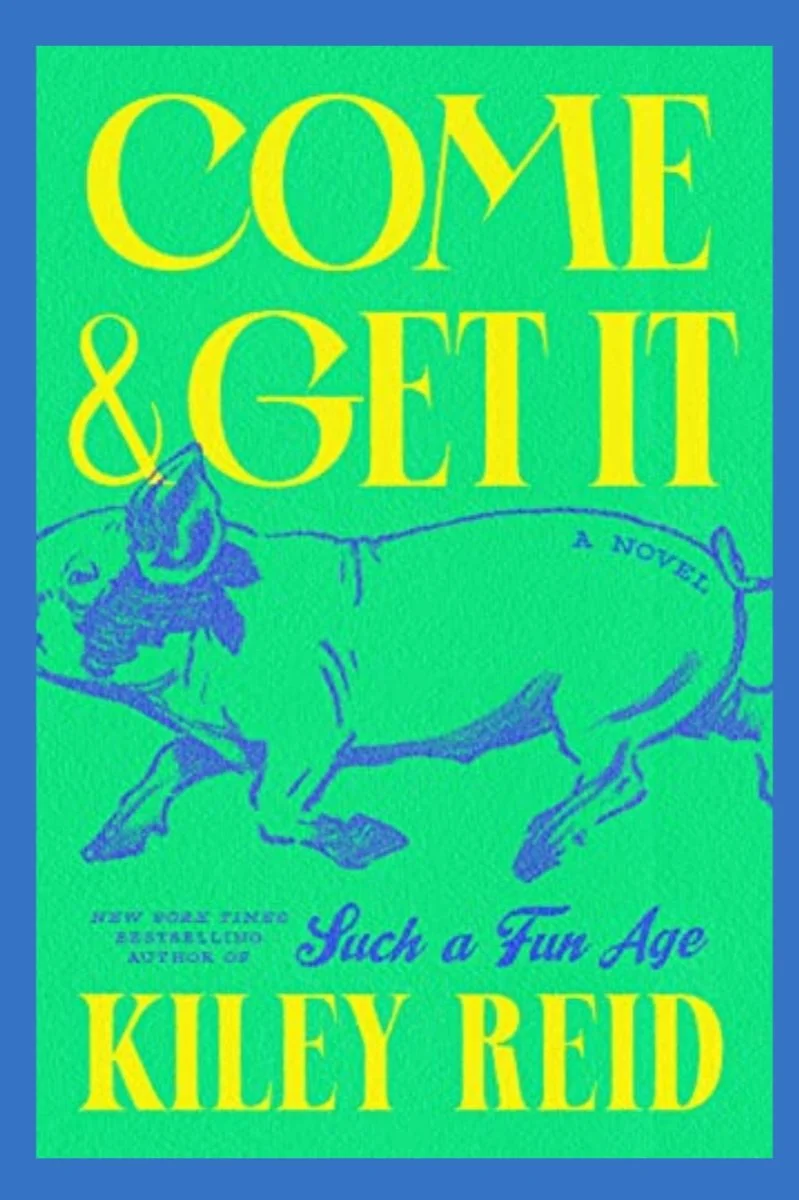Making my way through this epic often felt like a slog. It was frustratingly repetitive but also enlightening, forcing me to re-examine my own biases against someone who, I think now, is largely misunderstood as an artist and person.
Now Is Not the Time to Panic – Kevin Wilson
Expectation: An offbeat novel with commentary about misplaced outrage.
Reality: Elements that could’ve lifted this out of typical coming of age territory weren’t mined to completion by the author.
Different Seasons – Stephen King
Expectation: The author branching out into different genres during his peak era of the early 1980s.
Reality: Given how famous two of the stories have become thanks to stellar film adaptations, I was left a bit disappointed in the source material.
Oscar Wars: A History of Hollywood in Gold, Sweat, and Tears – Michael Schulman
For expecting this to be a frothy history, I was surprised by the detailed explorations of how the sausage was/is made – from studio system contracts to politicking and power grabs. People looking for an exhaustive recap of the awards themselves will be disappointed as Schulman presents more a chronicle of Hollywood in 11 eras, with the Oscars serving as a (sometimes loose) connective thread to introduce the films, actors and creators that defined each generation.
The Lottery and Other Stories – Shirley Jackson
Expectation: An assortment of psychological thrillers buoyed by the author’s famous short story, “The Lottery.”
Reality: While each story has elements of intrigue, this was a rather boring outing. If you’re interested in “The Lottery,” skip the full collection and seek it out as a standalone.
Roll of Thunder, Hear My Cry – Mildred D. Taylor
Expectation: A heavy-handed young adult classic that prioritizes hijinks over meaningful character development and scenario exploration.
Reality: Thoughtful and engrossing, the story had me hooked from the first chapter. This is a fantastic historical fiction introduction to America’s racial injustices.
The Wishing Pool and Other Stories – Tananarive Due
Expectation: Stories to chill-the-bones from a noted voice in the Black horror genre.
Reality: Interesting scenarios and characters are largely overshadowed by ancillary details and incomplete endings.
The Taking of Jake Livingston – Ryan Douglass
Expectation: A “Wednesday” meets “The Sixth Sense” gay horror-romance set in suburban Atlanta.
Reality: The subject matter was darker than expected – a plus – but the execution faltered near the end.
Go Tell It On the Mountain – James Baldwin
Expectation: A semi-autobiographical coming-of-age story.
Reality: A religious-soaked, multi-layered family drama.
The Vanishing Half – Brit Bennett
Expectation: A searing exploration of race and class told from the perspective of twin sisters who live on opposite ends of the color line.
Reality: Structured to be palatable for the masses, it’s entertaining enough but far from the powerful story I expected given the near universal acclaim it has received.
Small Joys – Elvin James Mensah
Expectation: A dramedy about self-discovery and queer acceptance.
Reality: Terrible dialogue ruined the few bright spots in an otherwise undercooked story.
March: Books One-Three – John Lewis and Andrew Aydin
For readers that want to brush up on the Civil Rights Movement of the 1960s, the “March” series is an exemplary feat of storytelling that exposes the hypocrisy, violence and injustice that spurred the movement while celebrating the everyday people who protested – and died – for desegregation and the passing of the Voting Rights Act.
Come & Get It – Kiley Reid
Expectation: A racially-charged exploration of college life in the Southern United States.
Reality: A dissection of capitalism from the perspectives of different students, professors and resident advisors delivered with biting commentary and razor-sharp dialogue.
Moon of the Crusted Snow – Waubgeshig Rice
Expectation: An action-packed post-apocalyptic First Nations-set thriller.
Reality: A slowburn story that uses the end-of-times as an allegory for settler colonialism, the Indigenous focus is what sets this apart from other, similar tales.
Pink Triangle Legacies: Coming Out in the Shadow of the Holocaust – W. Jake Newsome
While not as well-known in the mainstream as the Pride flag, the pink triangle – the Nazi concentration camp symbol for prisoners convicted under Paragraph 175, the German law that criminalized homosexual activity among men – is an enduring and important marker of queer history that morphed from an emblem of shame into a symbol of activism.
High-Risk Homosexual – Edgar Gomez
After a choppy start, Edgar Gomez’s engrossing memoir, “High-Risk Homosexual” morphed into an interesting dissection of cultural expectations, acceptance and self-discovery.
The Women – Kristin Hannah
Expectation: A sweeping story of hardship and survival set against major conflicts of the Vietnam War.
Reality: Informative and engrossing, if a tad long, Kristin Hannah once again delivers an historical fiction epic but continued trauma dumping on the main character lessens her credibility.
The Library Book – Susan Orlean
A mashup of true crime, memoir and history, the story is more glossy magazine feature than stodgy tome and stands as a love letter to libraries, and the crucial role these institutions play in building healthy communities and safeguarding democracy.
One Hundred Years of Solitude – Gabriel García Márquez
Expectation: An immersive story about one family’s experiences navigating the shifting social and political changes of a fictional Latin American village.
Reality: Some of the narrative choices — structure and naming of characters, mainly — made this difficult to follow, but the beauty of Gabriel García Márquez’s prose still shone through.
Fellow Travelers – Thomas Mallon
Expectation: A steamy political thriller about two up and coming politicos balancing a clandestine, queer love affair under the specter of the Lavender Scare.
Reality: Essentially a nonfiction novel with unlikable characters and flat development. Do yourself a favor and skip it in favor of the limited television series.



















